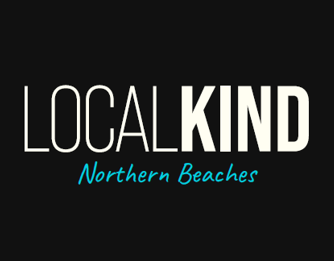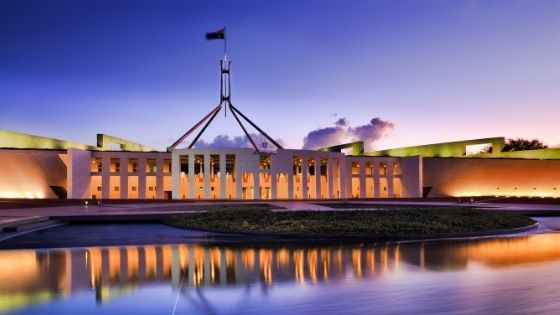Tax & Superannuation Overview
The Federal Treasurer, Dr Jim Chalmers, handed down the Labor government’s first Federal Budget at 7:30 pm (AEDT) on 25 October 2022.
Despite an uncertain global economic environment, the Treasurer has lauded Australia’s low unemployment and strong export prices as reason for a 3.5% growth in the current financial year, slowing to 1.5% in 2023–24. The Budget projects a deficit of $36.9 billion, lower than the forecast earlier this year of $78 billion.
Described as a sensible Budget for the current conditions, it contains various cost of living relief measures including cheaper child care, expanding paid parental leave and encouraging downsizing to free up housing stock. Key tax measures are targeted at multinationals, particularly changes to the thin capitalisation rules, and changes to deduction rules for intangibles.
Importantly, no amendments have been proposed to the already legislated Stage-3 individual tax rate cuts. Additional funding for a range of tax administration and compliance programs have also been announced. Finally, the fate of a suite of announced but unenacted tax measures, including a few that have been around for at least 10 years, has been confirmed.
The full Budget papers are available at www.budget.gov.au and the Treasury ministers’ media releases are available at ministers.treasury.gov.au. The tax, superannuation and social security highlights are set out below.
To read our comprehensive Budget report outlining the changes to taxation and accounting, please click below:
- Electric vehicles under the luxury car tax threshold will be exempt from fringe benefits tax and import tariffs.
- A number of Victorian and ACT-based business grants relating to the COVID-19 pandemic will be non-assessable non-exempt income for tax purposes.
- Grants will be provided to small and medium-sized businesses to fund energy-efficient equipment upgrades.
- The tax treatment for off-market share buy-backs undertaken by listed public companies will be aligned with the treatment of on-market share buy-backs.
- The 2021–22 Budget measure to allow taxpayers to self-assess the effective life of intangible depreciating assets will not proceed.
- Heavy Vehicle Road User Charge rate increased from 26.4 to 27.2 cents per litre of diesel fuel, effective from 29 September 2022.
- Australia has signed a new tax treaty with Iceland.
- Additional tariffs on goods imported from Russia and Belarus have been extended by a further 12 months, to 24 October 2023.
- Ukraine goods are exempted from import duties for a period of 12 months from 4 July 2022.
- Technical amendments to the taxation of financial arrangements (TOFA) rules proposed in the 2021–22 Budget will be deferred.
- Amendments to simplify the taxation of financial arrangements (TOFA) rules proposed in the 2016–17 Budget will not proceed.
- The proposed measure from the 2018–19 Budget to impose a limit of $10,000 for cash payments will not proceed.
- Proposed changes in the 2016–17 Budget to amend the taxation of asset-backed financing arrangements will not proceed.
- The new tax and regulatory regime for limited partnership collective investment vehicles proposed in the 2016–17 Budget will not proceed.
- The Pacific Australia Labour Mobility (PALM) scheme will be expanded and enhanced.
FBT and tariff exemptions for electric vehicles
Electric vehicles under the luxury car tax threshold ($84,916 for 2022–23) will be exempt from fringe benefits tax and import tariffs. To qualify for the exemption, the electric vehicle must not have been held or used prior to 1 July 2022. Legislation introducing the FBT exemption is before the Senate.
The FBT exemption ultimately provides an opportunity for individuals to purchase an electric vehicle under a salary sacrifice novated lease arrangement. Without the FBT exemption, any benefit of this type of arrangement can be negligible. This is especially the case when an employee’s business use percentage is very low or nil. A salary sacrifice arrangement effectively a saving for the user of an electric vehicle, as the payment of the vehicle will reduce their income tax. Along with the FBT savings, consumers of electric vehicle will also benefit from the removal of a 5% import tariff.
Despite the FBT exemption, an employer will still be required to report employees’ reportable car fringe benefits in the employees’ reportable fringe benefits amount. This reportable amount is part of the payment summary reporting requirements and is used to calculate various tax rebates and thresholds.
More business grants to non-assessable non-exempt income status
State-based business grants handed out during the COVID-19 pandemic are assessable income to the recipient unless the government places that grant in a special exclusion category. The government has announced the following Victorian and ACT business grants to be non-assessable non-exempt income for tax purposes:
This announcement is in addition to several other state-based business grants that have been give non-assessable non-exempt status since the beginning of the COVID-19 pandemic.
Energy efficiency grants for SMEs
Grants will be provided to small and medium-sized businesses to fund energy-efficient equipment upgrades.
The grants will be available to support studies, planning, equipment and facility upgrade projects that improve energy efficiency, reduce emissions or improve management of power demand. The government will provide $62.6 million over 3 years from 2022–23 for this measure.
Fuel tax credits — heavy vehicle road user charge increased
The Heavy Vehicle Road User Charge rate has been increased from 26.4 cents per litre to 27.2 cents per litre of diesel fuel, effective from 29 September 2022.
The previous rate of 26.4 cents per litre was announced in the 2021–22 Budget and commenced on 1 July 2021. The increased rate will reduce expenditure on the Fuel Tax Credit from the 2022–23 income year.
- The amount pensioners can earn in 2022–23 will increase by $4,000 before their pension is reduced, supporting pensioners who want to work or work more hours to do so without losing their pension.
- To incentivise pensioners to downsize their homes, the assets test exemption for principal home sale proceeds will be extended and the income test changed.
- The income threshold for the Commonwealth Seniors Health Card will be increased from $61,284 to $90,000 for singles and from $98,054 to $144,000 (combined) for couples.
- The Paid Parental Leave Scheme will be amended so that either parent is able to claim the payment from 1 July 2023. The scheme will also be expanded by 2 additional weeks a year from 1 July 2024 until it reaches 26 weeks from 1 July 2026.
- The maximum Child Care Subsidy (CCS) rate and the CCS rate for all families earning less than $530,000 in household income will be increased.
- The current higher Child Care Subsidy (CCS) rates for families with multiple children aged 5 or under in child care will be maintained.
- Legislation will be introduced to clarify that digital currency (or cryptocurrencies) will not be treated as foreign currency for income tax purposes.
- Eligibility to make a downsizer contribution to superannuation will be expanded by reducing the minimum age from 60 to 55 years.
- The 2021–22 Budget measure that proposed relaxing residency requirements for SMSFs and small APRA-regulated funds (SAFs) from 1 July 2022, has been deferred.
- The 2018–19 Budget measure that proposed changing the annual audit requirement for certain self-managed superannuation funds (SMSFs) will not proceed.
- A requirement for retirement income product providers to report standardised metrics in product disclosure statements, originally announced in the 2018–19 Budget, will not proceed.
Minimum age to make downsizer super contributions reduced
Eligibility to make a downsizer contribution to superannuation will be expanded by reducing the minimum age from 60 to 55 years.
The downsizer contribution allows an individual to make a one-off post-tax contribution to their superannuation of up to $300,000 per person from the proceeds of selling their home.
Both members of a couple can contribute and the contributions do not count towards non-concessional contribution caps.
The measure will take effect from the start of the first quarter after Royal Assent of the enabling legislation.
Proposed changes to SMSF residency requirements — deferred
The 2021–22 Budget measure that proposed relaxing residency requirements for SMSFs and small APRA-regulated funds (SAFs) from 1 July 2022, has been deferred.
The proposed measure relaxes the residency requirements for SMSFs by extending the central control and management test safe harbour from two to five years for SMSFs. In addition, the active member test will also be removed for both SMSFs and SAFs.
The change will allow members to continue to contribute to their superannuation fund whilst temporarily overseas, ensuring parity with members of large APRA-regulated funds.
This measure will now take effect on or after the date of Royal Assent of the enabling legislation.
Income threshold increased for Commonwealth Seniors Health Card
The income threshold for the Commonwealth Seniors Health Card will be increased from $61,284 to $90,000 for singles and from $98,054 to $144,000 (combined) for couples.
The government will also freeze social security deeming rates at their current levels for a further 2 years until 30 June 2024, to support older Australians who rely on income from deemed financial investments, as well as the pension, to deal with the rising cost of living.
This measure delivers on the Labor government’s election commitments as published in the Plan for a Better Future.
Need help?
If you would like assistance to interpret these changes and how they may affect your individual or business circumstances, please contact your Allan Hall Advisor on 02 9981 2300.
CONTACT ALLAN HALL





